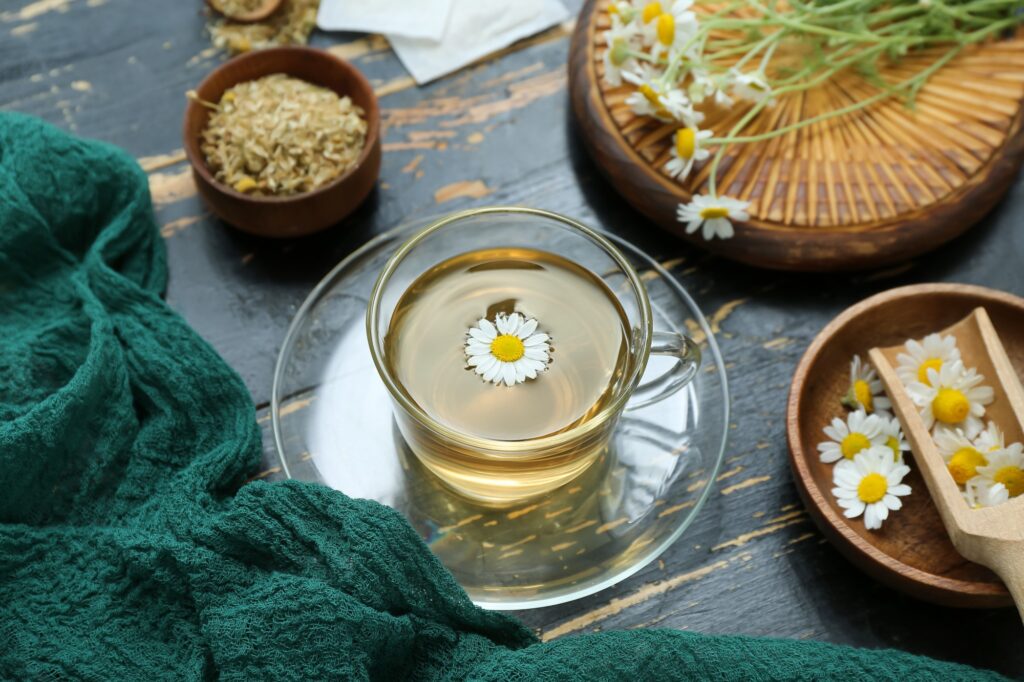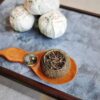
Are your seasonal allergies putting a damper on your day? Would you like to find a natural remedy that can offer relief without the side effects of medications? Look no further than your tea cabinet!
Tea has been used for centuries for its medicinal properties, and it’s no different when it comes to allergies. Whether you suffer from hay fever, dust mites, or pet dander allergies, certain types of tea have been shown to effectively ease symptoms and boost your immune system.
From classic favorites like chamomile and peppermint to lesser-known gems like nettle and rooibos, this guide will dive deep into the world of allergy-fighting teas. Learn about the specific compounds found in each tea that make them ideal for allergy relief and discover delicious recipes and blends to try.
Don’t let allergies hold you back from enjoying the season. Let tea be your natural remedy for soothing those seasonal sniffles and beyond. Stay tuned as we uncover the secrets to using tea to combat allergies and find relief.
Allergies and their symptoms
Allergies are a common immune system response to substances that are usually harmless. When you are exposed to allergens such as pollen, dust mites, or pet dander, your body reacts by releasing histamines, which can cause a range of symptoms including sneezing, itching, watery eyes, and congestion. These symptoms can be especially bothersome during allergy season, making everyday activities a challenge.
The benefits of using tea as a natural remedy for allergies
Tea has been used for centuries for its medicinal properties, and it’s no different when it comes to allergies. Certain types of tea contain compounds that have anti-inflammatory and antihistamine properties, making them ideal for soothing allergy symptoms. Unlike medications, which can come with unwanted side effects, tea offers a natural and gentle approach to allergy relief.
One of the main benefits of using tea for allergies is its ability to boost the immune system. The antioxidants found in tea help to strengthen the immune system, making it better equipped to fight off allergens and reduce the severity of symptoms. Additionally, the soothing warmth of tea can provide comfort and relaxation, helping to alleviate stress and promote overall well-being.
Types of tea that can help soothe allergies
When it comes to choosing the right tea for allergy relief, there are several options to consider. Herbal teas, green tea, and black tea have all been shown to have properties that can help alleviate allergy symptoms. Let’s take a closer look at each of these teas and how they can benefit you.
Herbal teas for allergy relief
Herbal teas are a popular choice for allergy sufferers due to their natural properties that can help ease symptoms. Chamomile tea, for example, has anti-inflammatory and antihistamine properties that can reduce the severity of allergic reactions. It can also help to relax the muscles and calm the mind, providing relief from stress and anxiety that can exacerbate allergy symptoms.
Peppermint tea is another excellent choice for allergies. It contains menthol, which acts as a decongestant and can help clear blocked sinuses. Additionally, peppermint tea has antimicrobial properties that can help fight off any secondary infections that may arise from constant sneezing and nasal congestion.
Nettle tea is a lesser-known gem when it comes to allergy relief. Nettle contains natural antihistamines that can help reduce the release of histamines in the body. It is especially effective for hay fever and can provide relief from symptoms such as sneezing, itching, and watery eyes.
Green tea and its anti-allergic properties
Green tea is well-known for its numerous health benefits, and it can also be a powerful ally in the battle against allergies. Green tea contains a compound called epigallocatechin gallate (EGCG), which has been shown to have anti-allergic properties. EGCG can help inhibit the release of histamines and reduce inflammation, providing relief from allergy symptoms.
In addition to its anti-allergic properties, green tea is also rich in antioxidants that can boost the immune system and reduce the severity of allergic reactions. The catechins found in green tea can help protect the body from oxidative stress and strengthen the immune system’s response to allergens.
Black tea and its role in reducing allergy symptoms
Black tea, like green tea, contains antioxidants that can help boost the immune system and reduce the severity of allergy symptoms. It also contains compounds called theaflavins, which have been shown to have anti-inflammatory properties. These compounds can help reduce the release of histamines and alleviate symptoms such as sneezing and nasal congestion.
Black tea is especially beneficial for seasonal allergies, as it can help reduce the production of mucus and relieve congestion. It can also provide relief from itchy eyes and throat, making it a soothing beverage to enjoy during allergy season.
How to prepare and consume tea for maximum allergy relief
To reap the full benefits of tea for allergy relief, it’s important to know how to prepare and consume it properly. Here are some tips to keep in mind:
- Choose high-quality tea: Opt for loose leaf tea or high-quality tea bags to ensure you’re getting the most out of your cup of tea. Cheap tea bags may contain lower-quality tea leaves that may not have the same potency or beneficial compounds.
- Brew it right: Follow the brewing instructions for each type of tea to ensure you’re extracting the maximum amount of beneficial compounds. Steep the tea for the recommended amount of time and at the proper temperature for optimal results.
- Add natural sweeteners: If you prefer your tea sweetened, opt for natural sweeteners like honey or maple syrup instead of refined sugar. These natural sweeteners can provide additional health benefits and complement the flavors of the tea.
- Stay hydrated: Drink plenty of tea throughout the day to stay hydrated and keep allergy symptoms at bay. Hydration is crucial for maintaining healthy mucous membranes and reducing congestion.
- Experiment with blends: Don’t be afraid to experiment with different tea blends to find the ones that work best for you. Mix and match different types of tea to create flavorful blends that provide maximum allergy relief.
Other lifestyle changes to complement tea in managing allergies
While tea can be a valuable tool in managing allergies, it’s important to remember that it is not a standalone solution. Making certain lifestyle changes can further enhance the effectiveness of tea in providing allergy relief. Here are some additional tips to consider:
- Maintain a clean living environment: Regularly clean your home to reduce allergens such as dust mites and pet dander. Vacuum frequently, wash bedding in hot water, and consider using air purifiers to improve indoor air quality.
- Minimize outdoor exposure: During allergy season, try to limit your time outdoors, especially during peak pollen hours. Keep windows closed, use air conditioning, and avoid activities that can stir up allergens, such as mowing the lawn.
- Practice good hygiene: Wash your hands frequently to reduce the spread of allergens. Avoid touching your face, especially your eyes and nose, as this can introduce allergens into your system.
- Use nasal rinses: Nasal rinses can help flush out allergens from your nasal passages, providing temporary relief from congestion and reducing the severity of other allergy symptoms. Use a saline solution or a neti pot to perform nasal rinses.
Precautions and considerations when using tea for allergies
While tea is generally safe for consumption, there are a few precautions and considerations to keep in mind when using tea for allergy relief. These include:
- Allergy to tea: Some individuals may have an allergy to tea itself. If you experience any adverse reactions after consuming tea, such as hives, swelling, or difficulty breathing, discontinue use and seek medical attention.
- Caffeine sensitivity: Certain types of tea, such as black and green tea, contain caffeine. If you are sensitive to caffeine or have trouble sleeping, opt for caffeine-free herbal teas instead.
- Interactions with medications: If you are taking any medications, including allergy medications, it’s important to consult with your healthcare provider before incorporating tea into your routine. Some teas may interact with certain medications and can affect their efficacy.
- Moderation: While tea can provide relief from allergy symptoms, it’s important to consume it in moderation. Excessive consumption of tea, especially those containing caffeine, can have negative effects on your health.
Embracing the power of tea in managing allergies
Don’t let allergies hold you back from enjoying the season. With the help of tea, you can find natural relief from those pesky seasonal sniffles and beyond. From herbal teas to green and black tea, each variety offers unique compounds and properties that can help soothe allergy symptoms and boost your immune system.
Remember to choose high-quality tea, brew it properly, and experiment with blends to find the ones that work best for you. Combine tea with other lifestyle changes, such as maintaining a clean living environment and practicing good hygiene, to maximize its effectiveness in managing allergies.
While tea can be a powerful ally in the battle against allergies, it’s important to listen to your body and consult with your healthcare provider if you have any concerns or existing medical conditions. Embrace the power of tea and take control of your allergies naturally. Cheers to a sniffle-free season!






